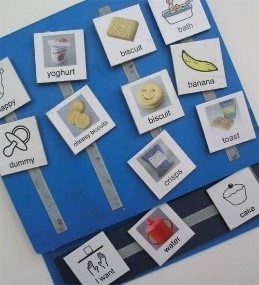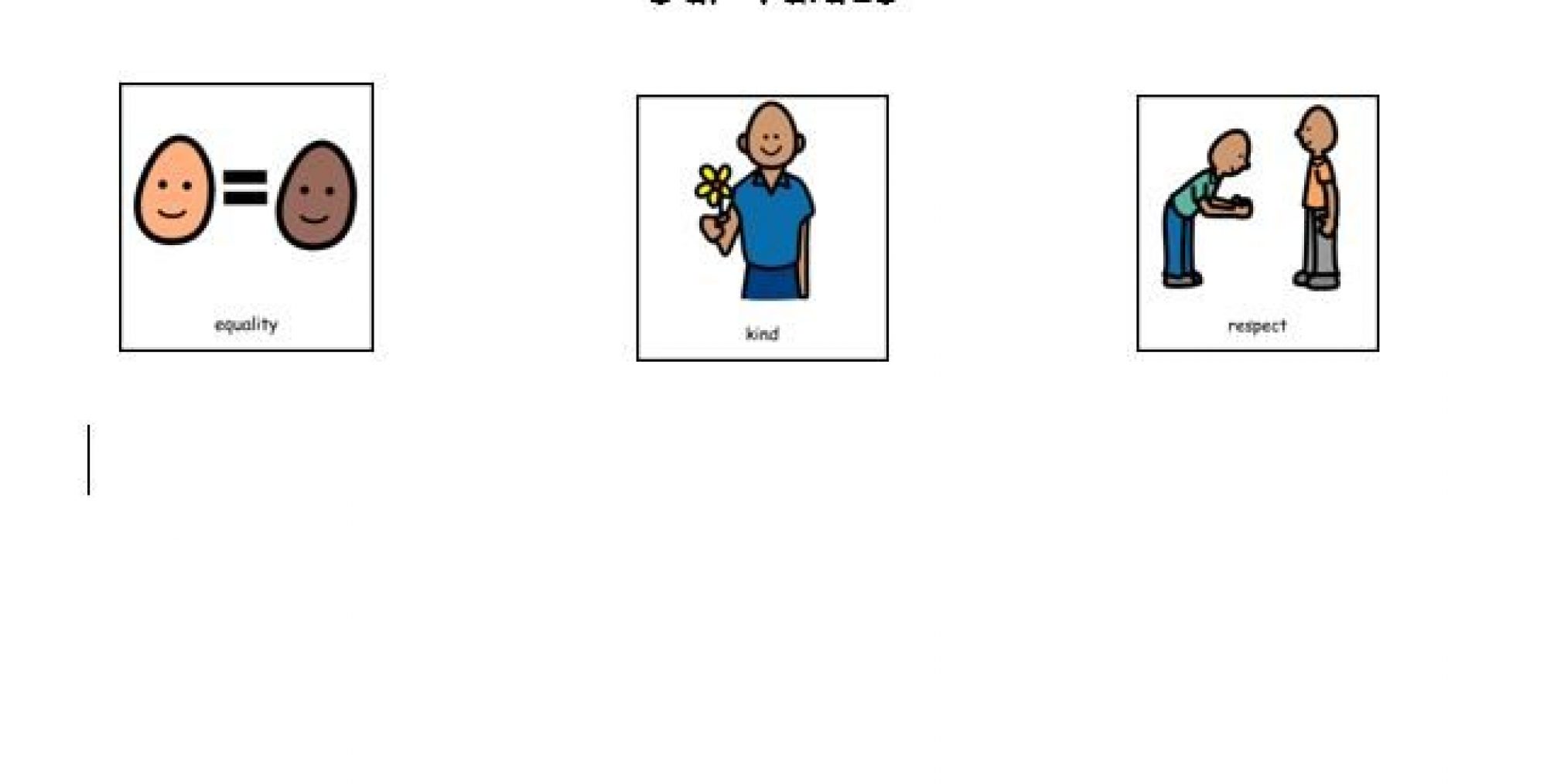We use a number of low tech communication methods to support our children at Victoria Park.
Some of these are used generically around the school and others are used on an individual basis depending on a child’s identified need.
- Boardmaker is a collection of standardised picture symbols used for communication with pupils to aid understanding. We have devised a core vocabulary which contains signs for class timetables as well as signs to support maths and language. This ensures we have a consistent approach across the school.



Boardmaker symbols are used around the school for a variety of purposes e.g. displays, learning intentions etc. Any written sign around the school has the appropriate Boardmaker displayed. We use the Boardmaker online resource and all classes use this resources to support learning and teaching.

- Visual timetables help users to understand what they are doing during the day. Timetables give structure to the day and can reduce anxiety levels.
Visual timetables should be differentiated for individual pupils. They maybe in the form of objects, photos, symbols or words. Every class has a visual timetable and some pupils have individual timetables personalised to their needs.

- Objects of reference are used to support individual’s understanding of what is happening. They can see and hold the object that represents the activity or place and the object can be taken with them. Each identified child has a bag with the objects of reference in it. These are kept with the child or nearby.

- Picture Exchange Communication System (PECS) is a method that supplements or replaces speech by exchanging picture symbols/photographs to meet all or some of a child’s communication needs.

- Talking Mats are an interactive resource that uses picture communication symbols. A pupil is given options about a given topic one at a time and is asked to think about how they feel about that option and the visual is then placed under the appropriate heading showing how they feel.

- PODD books are used with some children. PODD stands for Pragmatic organisational dynamic display books. PODD contains symbols to support communication between a pupil and their communication partner.

